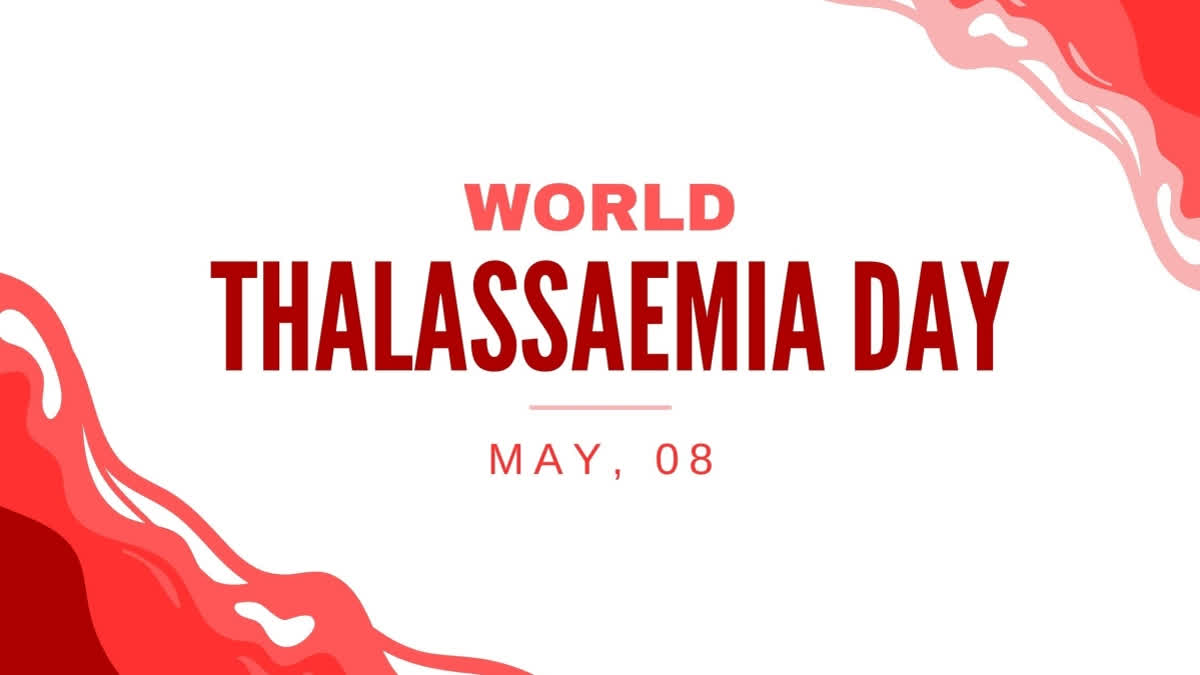Hyderabad: Taking your children to the hospital for a diagnosis or treatment can be a scary thought for parents due to the possible situations and outcomes that can present themselves at the hospital. Imagine the plight of a parent if they are asked to admit their children to the hospital for a blood transfusion! The fear becomes ten-fold!
But for 44-year-old Sangeeta from Indore, taking her children to the hospital almost every month for blood transfusions has become a routine. Sangeeta, who works as a nanny in a nearby school, has a 13-year-old daughter and a 7-year-old son, both suffering from the condition of Thalassaemia. During the Covid-19 pandemic, one of Sangeeta's daughters lost her life due to this disease.
Sangeeta reveals that regular blood transfusions due to Thalassaemia are just one of the conditions associated with this disease. Heightened sensitivity towards other diseases and infections in children due to Thalassaemia, requires continuous efforts to save them from getting sick. There are millions of children around the world suffering from Thalassaemia whose parents are forced to live in a war-like state due to the disorder.
Thalassaemia is a serious genetic blood disorder, and according to the data available till the year 2020, the number of Thalassaemia patients around the world was about 27 crores. The number of children suffering from Thalassaemia was the highest in India, which was more than one lakh. About 10,000 new patients of Thalassaemia are detected every year in the country.
Even though in the last few years, due to the efforts of various government and non-government organisations people are becoming aware of many complex and rare diseases, people still have little to no information about Thalassaemia. World Thalassaemia Day is observed every year on May 8 to promote awareness about this disease among the common people all over the world. In the year 2023, the day is being observed around the theme 'Be Aware. Share. Care: Strengthening Education to Bridge the Thalassaemia Care Gap'.
In 1994, the Thalassaemia International Federation, intending to spread awareness among people about this disease and its management and treatment, decided to observe 'World Thalassaemia Day'. Panos Anglezos, the founder and president of the Federation, announced that the day be observed on May 8, in memory of his son, a fellow Thalassaemia victim fighting the disease.
Also read: World Hand Hygiene Day 2023: SAVE LIVES - Clean Your Hands
World Thalassaemia Day is also an opportunity to remember the ones who lost their lives to this deadly disease and encourage people suffering from it and boost their morale. On this day, various national, international, government and non-government health organizations and health professionals conduct awareness programs for counselling, management and treatment of Thalassaemia at the global level.
Thalassaemia is a genetic disorder / autosomal recessive disorder, which can be transmitted to the child through either of the parents. In this disease, the production of red blood cells in the patient's body is compromised, and the blood cells produced also do not perform properly for a long time.
The natural form of blood in the body, especially haemoglobin, is reduced or stopped from being made. In such situations, to meet the required amount of blood in the body, patients have to rely on transfusion at regular intervals. As the patient ages and their body starts developing, the amount of blood required for transfusion also increases as per the needs of their bodies.
Thalassaemia is of two types, mild and major. Children suffering from mild Thalassaemia can usually lead a normal life, but for children suffering from major Thalassaemia, the chances of survival for a long time are less. Even if the children who suffer from major Thalassaemia survive, they may have to face other related issues throughout their life. Symptoms of Thalassaemia start appearing in children within six months of birth. Symptoms such as lack of blood, yellow nails and tongue, slow or stopped physical development, difficulty in gaining weight, malnutrition, weakness, shortness of breath, abdominal swelling, and urinary problems, etc. start occurring in children.
In most cases, there is no permanent and completely effective treatment for Thalassaemia, but blood stem cell transplants have proven to be very effective in treating this disease. In this treatment, blood stem cells donated by a healthy person whose HLA (Human Leukocyte Antigen) is a perfect match with the patient are used for transplant. But this is not an easy remedy for the disease, as only 25-30 per cent of patients in need of transplants get such donors from their own family, the rest have to depend on external donors.
To prevent this from happening and under the policy of better prevention of treatment, people suffering from Thalassaemia are asked to get the necessary medical tests done before marriage or planning a child. If one or both of the mother or father has Thalassaemia, the chances of the child getting this disease increase significantly. Nowadays it is also advised to get the child's Thalassaemia test done before it is born so that the status of Thalassaemia in the fetus can be detected and efforts can be made for its prenatal diagnosis.



